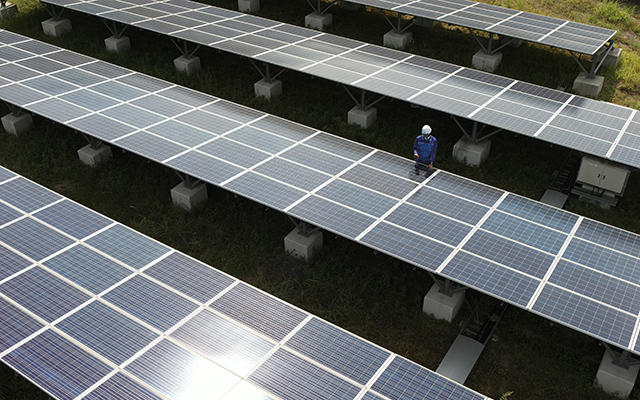PFI and designated administrator projects & eco-solutions
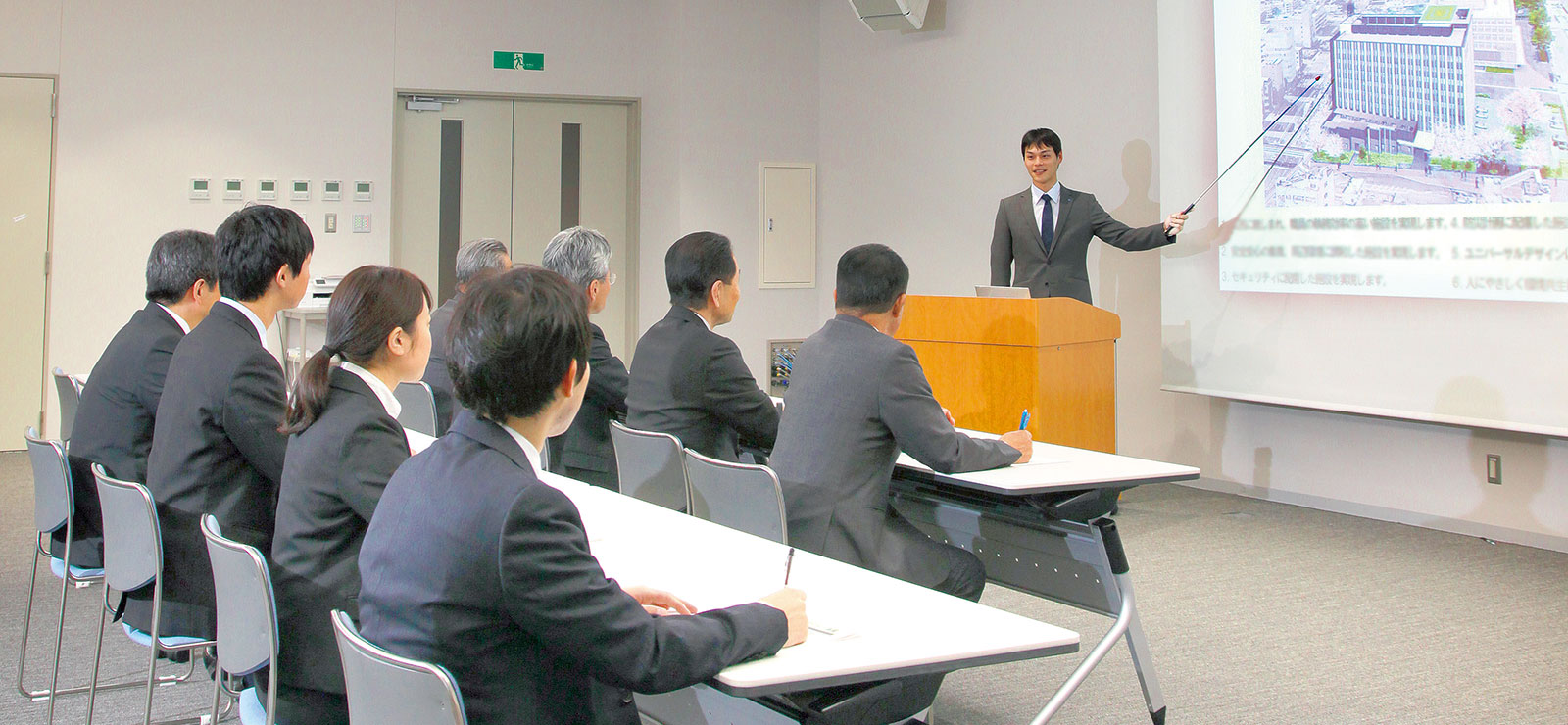
We provide low-cost, high-quality public services that have been made available to local communities.
In a PFI and designated administrator project, multiple companies form a consortium that leverages their respective strengths to develop, operate, and manage public facilities in unison. As a company rooted in Shikoku, we proactively engage in business development in hopes of contributing to regional growth.
PFI projects
PFI stands for private finance initiative, such that a PFI project aims to improve the quality of public services by harnessing the financing muscle, management abilities, and technical capabilities of private-sector companies for everything from the designing of public facilities to their development, operations, and management. We have been involved in numerous PFI projects, including one involving the development of the Utazu New Food Service Center. In addition to the facility development business that constitutes one of our strengths, we also aim to take on the challenge of operating and managing public services to contribute to local communities.
Utazu New Food Service Center
development and operations project
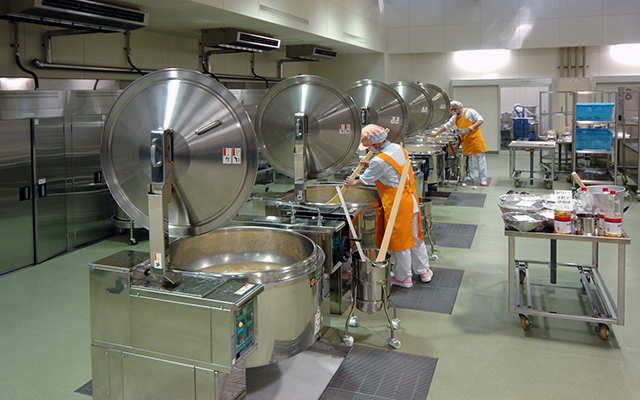
| Name | Utazu Town School Food Service Center (order submitted by Utazu Town) |
|---|---|
| Location | 2628-993 Utazu-cho, Ayauta-gun, Kagawa |
| Operator | Utazu Food Service, Inc. |
| Scale of facility | One aboveground floor; total floor area of approx. 1,500 m² |
| Project costs | Approx. 4.0 billion yen |
| Contents of operations | Facility development, maintenance and management, food preparation operations, food procurement, and more |
| Project term | February 2006 to March 2027 (maintenance, management, and operations from April 2007 = 20 years) |
| Website | http://www.utazu-ks.jp/ |
PFI project for the development of the Tokushima Higashi Police Station building
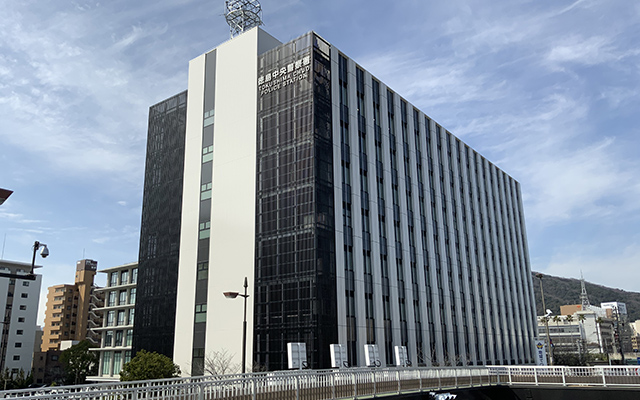
| Name | Tokushima Central Police Station (order submitted by Tokushima Prefecture) |
|---|---|
| Location | 1-5-2 Tokushima-cho, Tokushima-shi, Tokushima |
| Operator | Tokushima Prefectural Police PFI Service, Inc. |
| Scale of facility | Eight aboveground floors; total floor area of approx. 11,903 m² |
| Project costs | Approx. 7.5 billion yen |
| Contents of operations | Facility development, maintenance and management, and operation management |
| Project term | March 2018 to March 2036 (operations from March 2021 to March 2036 = 15 years) |
| Website | - |
Project for the development and operations of the Tokushima Agriculture,
Forestry, and Fisheries Technology Support Center
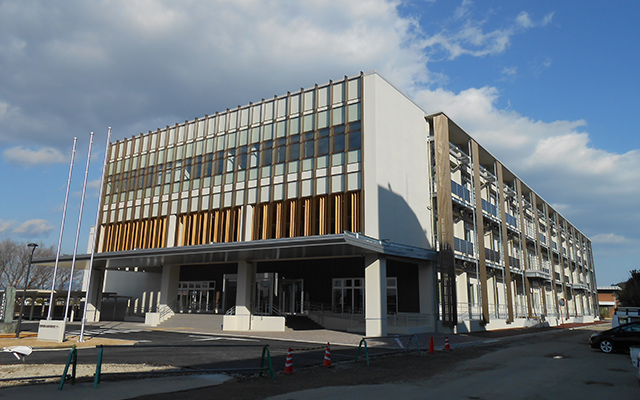
| Name | Tokushima Agriculture, Forestry, and Fisheries Technology Support Center (order submitted by Tokushima Prefecture) |
|---|---|
| Location | 1660-5 Ishii, Ishii-cho, Myozai-gun, Tokushima |
| Operator | Tokushima Agriculture, Forestry, and Fisheries PFI Service, Inc. |
| Scale of facility | Main building: Three aboveground floors, one penthouse floor; total floor area of approx. 7,407 m² Work building: Total floor area of approx. 450 m² Greenhouse, pipe house, and field |
| Project costs | Approx. 3.4 billion yen |
| Contents of operations | Facility development, maintenance and management, operations, and incidental programs |
| Project term | December 2010 to March 2033 (maintenance and management, operations, and incidental programs from April 2013 to March 2033 = 20 years) |
| Website | https://www.pref.tokushima.lg.jp/tafftsc/ |
Project for the development of
a facility for Ōzu City
Nagahama Junior High School
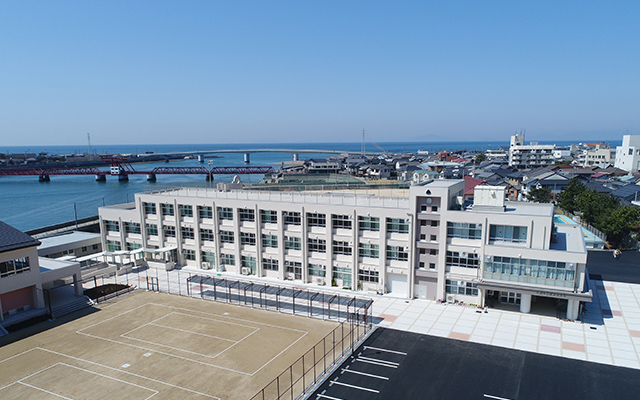
| Name | Ōzu City Nagahama Junior High School (order submitted by Ōzu City) |
|---|---|
| Location | Ko 1, Nagahama-cho, Ozu-shi, Ehime |
| Operator | Ozu School PFI Service, Inc. |
| Scale of facility | School building: Three aboveground floors; total floor area of approx. 2,718 m2 Indoor sports building: total floor area of approx. 946 m2 |
| Project costs | Approx. 1.6 billion yen |
| Contents of operations | Facility development, maintenance, and management |
| Project term | November 2016 to March 2035 (operations from April 2020 to March 2035 = 15 years) |
| Website | - |
Designated administrator projects
A designated administrator project is a project that aims to improve the quality of public services by having the operations and management of a public facility undertaken by a private-sector company. We have been operating and managing facilities as a designated administrator of the Kagawa Prefectural Marugame Stadium, Kagawa Prefectural Budoukan, and Takamatsu City Yashima Rexxam Field under the designated administrator scheme that was established in 2003. We are working to operate and manage these facilities as a trusted company that has been granted opportunities to interact with local residents.
Kagawa Prefectural Budoukan
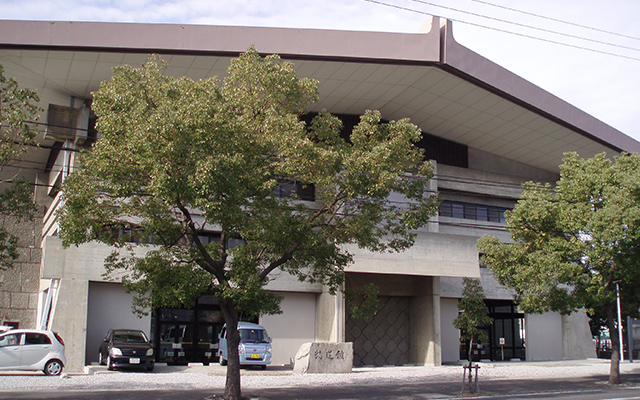
| Name | Kagawa Prefectural Budoukan (order submitted by Kagawa Prefecture) |
|---|---|
| Location | 1-5-5 Fukuoka-cho, Takamatsu-shi, Kagawa |
| Facility contents | Judo hall, kendo hall, kyudo (archery) hall |
| Project term | Phase 1 (April 2006 to March 2009) 3 years Phase 2 (April 2009 to March 2012) 3 years Phase 3 (April 2012 to March 2017) 5 years Phase 4 (April 2017 to March 2022) 5 years |
| Website | https://www.taiikukan.jp/ |
Kagawa Prefectural Marugame Stadium
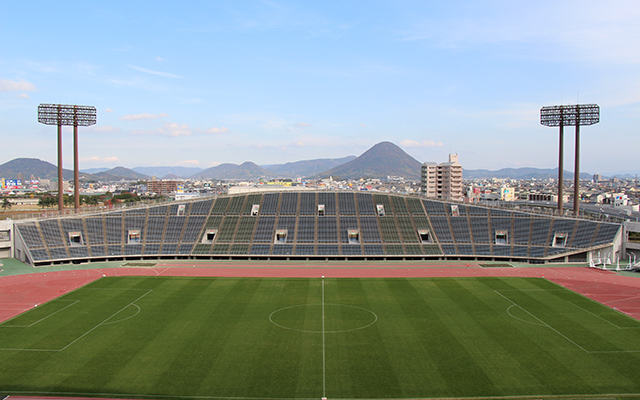
| Name | Kagawa Prefectural Marugame Stadium (order submitted by Kagawa Prefecture) |
|---|---|
| Location | 830 Kanakura-cho, Marugame-shi, Kagawa |
| Facility contents | Main ground, auxiliary ground, training rooms, meeting rooms, and more (spectator capacity: 30,000 persons) |
| Project term | Phase 1 (April 2007 to March 2012) 5 years Phase 2 (April 2012 to March 2017) 5 years Phase 3 (April 2017 to March 2022) 5 years |
| Website | http://www.marukyou.jp/ |
Takamatsu City Yashima Rexxam Field
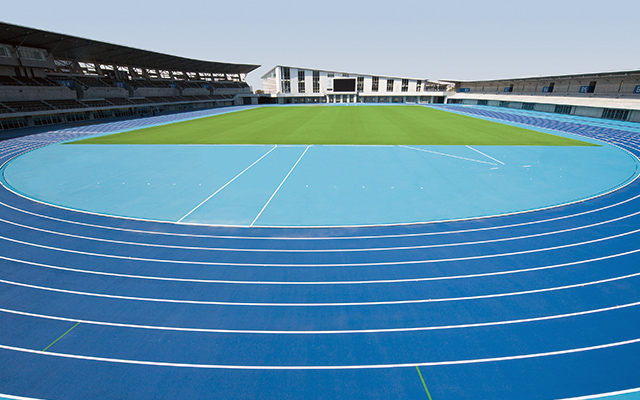
| Name | Takamatsu City Yashima Rexxam Field (order submitted by Takamatsu City) |
|---|---|
| Location | 374-1 Yashimanaka-machi, Takamatsu-shi, Kagawa |
| Facility contents | Main stadium, auxiliary stadium, indoor stadium, meeting rooms, and more (spectator capacity: 6,000 persons) |
| Project term | April 2017 to March 2022 5 years |
| Website | http://www.yashima-f.jp |
Eco-solutions
The electricity and thermal energy that are indispensable in our daily lives are obtained from precious earth-derived resources. In order to enable the effective use of limited resources and reduce energy costs, we meet the needs of our clients through the installation and construction of electrical equipment, water supply and drainage systems, air-conditioning systems, and various other options. We also collect and analyze data on building equipment, the environment, and energy; make upgrades to facilitate the use of the latest energy-saving equipment; carry out energy-saving control and energy management tasks; reduce energy and maintenance costs; and otherwise support our clients with an integrated system for the provision of detailed equipment diagnosis, equipment repair, and maintenance services.
ESCO projects
ESCO is short for Energy Service Company and constitutes a service by which the costs of renovating equipment and systems related to energy conservation are offset by the reduction in utility costs achieved by the renovation and by which cost reduction benefits that are further achieved are shared with the client. The term of a project is typically around ten years. We are comprehensively involved in renovation work and the operations and management of introduced equipment and systems as an ESCO operator and undertake everything on an integrated basis from the planning stage to the installation, construction, and testing stages to achieve more effective substantial energy savings. In addition, we aim to carry out higher quality ESCO projects by effectively leveraging subsidies for energy-conservation investments and other support programs.
Awa Library
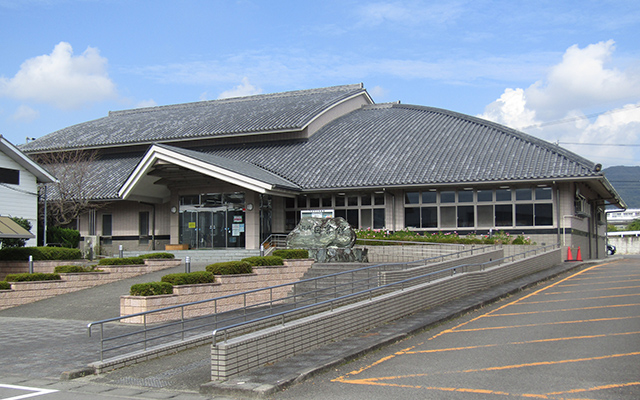
| Name | Length of project in years | Commencement of project operations | |
|---|---|---|---|
| Tokushima City Main Government Building and Tokushima Castle Museum | Tokushima-shi, Tokushima | 15 | April 2011 |
| Hotel Riviera Shishikui | Umiyo-cho, Tokushima | 15 | April 2013 |
| Sanuki Kodomo no Kuni | Sanuki Kodomo no Kuni Takamatsu-shi, Kagawa | 12 | April 2014 |
| Sukoyaka Center Ino | Ino-cho, Kochi | 10 | April 2015 |
| Awa City Primary Public Facility | Awa-shi, Tokushima | 3 | April 2020 |
Six other projects
Solar power generation
As a company that specializes in the installation and construction of electrical equipment, we have been involved in numerous jobs for the construction of small to medium-sized solar power-generation facilities since the 1990s. Since the introduction by the national government of the feed-in tariff system for renewable energy in 2012, there has been a rapid increase in the number of mega-solar power plants constructed throughout the country, as a result of which we have been lucky enough to be involved in the design and construction of many such projects. We will continue to proactively harness our technology and know-how to design, install, and construct solar power-generation facilities in order to realize a decarbonized society.
Solar power generation business
